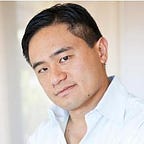If you know what you want to be in the future, start being it now.
I’ve been a partner at Lightspeed Venture Partners for ten years now. As a result, people sometimes ask me how to get into venture capital. I wish I had a good answer, but the reality is that I fell into it somewhat by accident.
I started out as a frustrated mathematician, acutely conscious that, good as I was, there were people out there 100x better than me. I was on the Australian team for the 1988 International Math Olympiad, but my teammate was Terry Tao, the eventual 2006 Fields Medalist, and the quality difference was clear even then.
I ended up taking a job at McKinsey when I graduated and, after two years there, followed a boss who started a company called CitySearch back in 1995. I had no particular passion for the internet or technology. I just thought that he was a great boss, so I moved to the US to work for him again.
It was the late 90s, so CitySearch went public, became a public subsidiary of USA Networks, and I found myself at USA Networks as VP of Strategic Planning. USA Networks was run by Barry Diller, and for him strategic planning often boils down to “which company should I buy next?” I wound up working on many of the transactions that led USA Networks to turn into IAC (buying Expedia, Ticketmaster, Match.com, Hotels.com and other companies, and selling USA Networks, the Sci Fi Channel and the TV and Movie studios to Vivendi Universal).
While at IAC I got to know Jon Miller pretty well, and when he left to be CEO of AOL in 2002, I followed him there as his Chief of Staff and SVP of Corporate Development. After two years in that job I dropped into an operating role, and was General Manager of Netscape for a couple of years, which had been bought by AOL back in 1999.
In 2005 I got a call from a business school classmate asking if I had ever considered a career in venture capital. At that time it had been half a decade since venture capitalists had looked at investing in internet companies, and several firms were looking for some people with domain expertise. One thing led to another and I ended up joining Lightspeed in 2006.
It was a very circuitous path. As my partner Alex Taussig wrote, you can’t overplan your career.
Some people who are set on entering venture capital learn the wrong lesson from this path. I hear some variations of these plans pretty frequently:
“I want to spend a few years in venture so that I am better prepared to start a company in the future.”
“I want to work at a startup for a few years so that I am better prepared to be a VC in the future.”
“I want to work at a big tech company for a few years so that I am better prepared to be a VC in the future.”
If you know what your end goal is, I think that these are all bad plans. People argue that gaining some experience in a related field makes them more qualified to enter another field in the future. Let’s try running that argument outside of tech startup land:
“I want to spend a few years as a dentist so that I am better prepared to be a doctor in the future.”
“I want to work as a corporate lawyer for a few years so that I am better prepared to be an investment banker in the future.”
“I want to work as a waiter for a few years so that I am better prepared to be a chef in the future.”
Now the arguments don’t sound so compelling. The best training for doing any job is doing that job. Not doing a related job. Doing the job itself. Sure, five years working as a VC might give you more context as a founder in the future. But not as much context as five years as a founder would.
If you know what you want to do, start doing it right away. If you can’t get that job today, keep hustling. If you don’t think you can be a VC, or a founder today, you’re wrong. You might not be a great VC, or a great founder, but the best way to get great is by learning from the job. You might fail. But that is OK. You’ll still be better at doing what you want to do after a failure than doing something completely different.
Leave your plan for achieving your career goals in comments.
☞ If you like this post, click “♥︎” so that others can find it.
☞ And, you can always follow me on Twitter.
